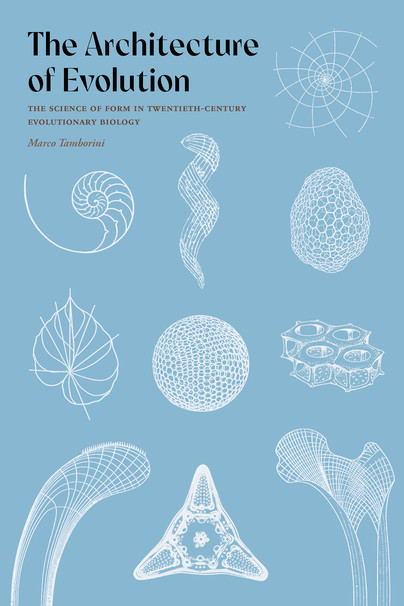The Architecture of Evolution (Hardback)
The Science of Form in Twentieth-Century Evolutionary Biology
Imprint: University of Pittsburgh Press
Pages: 283
ISBN: 9780822947356
Published: 6th February 2024
Script Academic & Professional
Pages: 283
ISBN: 9780822947356
Published: 6th February 2024
Script Academic & Professional
You'll be £41.00 closer to your next £10.00 credit when you purchase The Architecture of Evolution. What's this?
+£4.99 UK Delivery or free UK delivery if order is over £40
(click here for international delivery rates)
Need a currency converter? Check XE.com for live rates
(click here for international delivery rates)
Need a currency converter? Check XE.com for live rates
In the final decades of the twentieth century, the advent of evolutionary developmental biology (evo-devo) offered a revolutionary new perspective that transformed the classical neo-Darwinian, gene-centered study of evolution. In The Architecture of Evolution, Marco Tamborini demonstrates how this radical innovation was made possible by the largely forgotten study of morphology. Despite the key role morphology played in the development of evolutionary biology since the 1940s, the architecture of organisms was excluded from the Modern Evolutionary Synthesis. And yet, from the beginning of the twentieth century to the 1970s and ’80s, morphologists sought to understand how organisms were built and how organismal forms could be generated and controlled. The generation of organic form was, they believed, essential to understanding the mechanisms of evolution. Tamborini explores how the development of evo-devo and the recent organismal turn in biology involved not only the work of morphologists but those outside the biological community with whom they exchanged their data, knowledge, and practices. Together with architects and engineers, they worked to establish a mathematical and theoretical basis for the study of organic form as a mode of construction, developing and reinterpreting important notions that would play a central role in the development of evolutionary developmental biology in the late 1980s. This book sheds light not only on the interdisciplinary basis for many of the key concepts in current developmental biology but also on contributions to the study of organic form outside the English-speaking world.
PRAISE
"Marco Tamborini’s book is a much-needed history of morphological thought in the twentieth century. It provides an engaging intellectual journey, leading us through biology, architecture, philosophy, engineering, mathematics, politics, and art. This is a highly original contribution that shows how the science of form emerged from an international and interdisciplinary enterprise." ~Maurizio Esposito, University of Lisbon, Portugal
Other titles in University of Pittsburgh Press...















